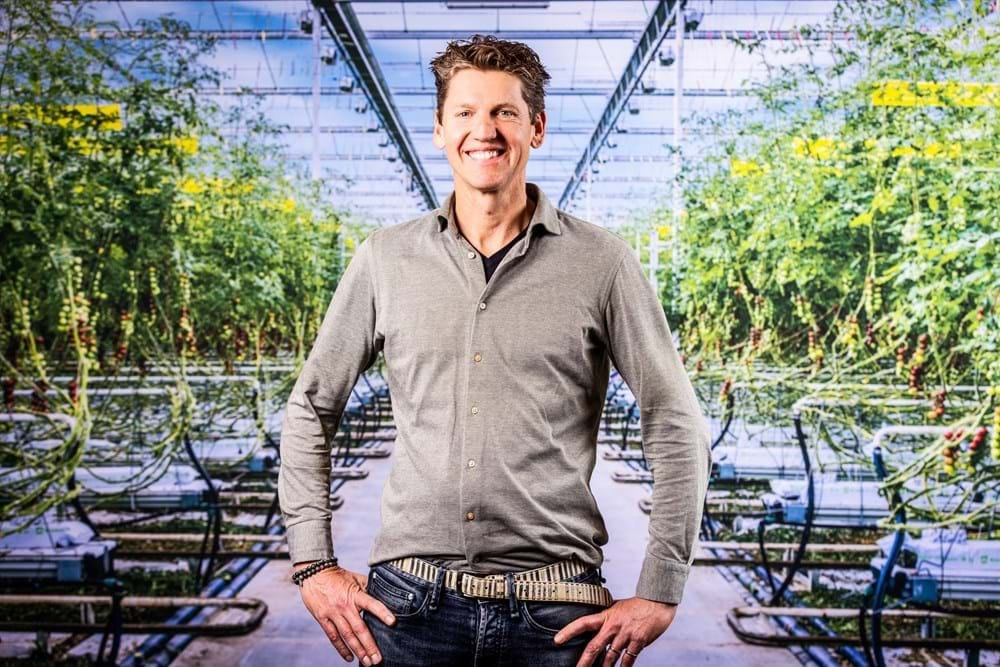There are some big names in tomato growing that you simply cannot ignore – one key example is Agro Care. With branches in four countries, seven locations and a team of 2,500 employees, Agro Care is an important player in the European tomato market. They grow tomatoes all year round, strive for sustainability and value collaboration. Ad van Kester is the Operational Director at Agro Care. He is responsible for Dutch production and plays a crucial role in the strategy and activities of this leading greenhouse horticulture company. How does he view the market? The trends and developments? And of course the globalization of the sector?
The first question comes from Sjaak Bakker, with whom we had a conversation last time: “How do you view the future of the Dutch greenhouse horticulture sector in general? And how do you specifically see the future of your tomato operation?”
Ad: “The Netherlands remains an excellent country for tomato cultivation. Partly because of our location, because we are close to the European market, which is very convenient. I believe that the Netherlands will continue to play an important role in international tomato cultivation. As for our own plans; We want to grow to 1,000 hectares - that is our long-term target. Ideally, our operations would be split 50% in the Netherlands and 50% abroad. Currently it is 75% in the Netherlands and 25% elsewhere. We do not intend to grow further in the Netherlands, except through acquisitions or the use of available empty land at existing companies. The main driver for expanding abroad is the difference in labor costs and increasing taxes on energy in the Netherlands. But we will certainly remain active in the Netherlands with a large share.”
What challenges and opportunities does the globalization of greenhouse horticulture bring for Dutch growers?
Ad: “There are enormous opportunities abroad, more so than in the Netherlands. The trick is to respond to that. If you do that well, you will have a more stable company with several legs under its chair. To do this you will have to work together. The management of Agro Care consists of 11 people. Then you can simply do more than when you are alone. For me personally, the collaboration started in 2000, and we have only continued to do so since then. As a result, we have been growing crops in Africa since 2010."
Agro Care grows tomatoes on a large scale in four different countries: the Netherlands, France, Morocco and Tunisia. How does Agro Care contribute to improving living standards in the regions in which it operates, especially in Tunisia?
Ad: “Our presence in countries such as Tunisia certainly contributes to the local communities. Employees are happy with the jobs we create and we invest in facilities such as childcare and medical care at our locations. We also participate in Fair Trade initiatives, where consumers pay a little more for our product, which goes directly to social services for the local community.”

What do you think are some of the challenges and benefits of growing tomatoes on a large scale, as Agro Care does?
Ad: “Large-scale cultivation has more advantages than disadvantages. Every grower has challenges with rising hourly wages, availability of employees, desired sustainability, fewer resources in the medicine cabinet, diseases and pests. By growing on a large scale, it is easier to deal with these challenges. We have a large group of employees with a lot of knowledge and skills, which means we are well able to deal with these challenges. Wherever we learn something, we can apply it immediately in all greenhouses in all countries. If something goes wrong in a greenhouse, this is always a small part of the whole, which limits the damage. We also learn from each other’s mistakes, it is also good to know what not to do and where there are areas for improvement.”
Agro Care has been around for over 25 years and has experienced many changes and developments. A recent trend is the high demand for retailers and consumers in terms of sustainability and environmental friendliness in food production. How do you respond to this?
Ad: “It may sound a bit cliché, but these are trends that we embrace. It's very simple: this trend is happening, so we have to go along with it. And by the way, it is not just a matter of having to, but also of wanting to. For example, we invest in organic cultivation methods and reduce the use of chemicals. We do everything to reduce our footprint, such as reducing energy consumption through LED lighting and a second energy screen. We also use alternative energy sources and look at what else we can do in the areas of geothermal energy and wind energy, for example.”
What are Agro Care's future plans and ambitions in the field of sustainability and international growth?
Ad: “Of course, at Agro Care we continue to invest in sustainability, for example by increasing our use of renewable energy sources and reducing our ecological footprint. That really is an ongoing process for us. Just like innovation, by the way, which also improves continuously. We always look to see if something can be done better and more efficiently. We have recruited an innovation employee specifically for this purpose. For example, he investigates what the best options are for us in the field of artificial intelligence and robotics, but also climate control technologies. Finally, we want to grow further internationally in the future, as I said. We therefore always look at strategic partnerships and opportunities in new markets.”
Finally, the next candidate is Peet van Adrichem, director of HortiTech. What question do you want to ask him?
Ad: “As director of HortiTech, how do you use Dutch expertise to stimulate the growth of the agricultural sector worldwide, especially in tomato cultivation?”